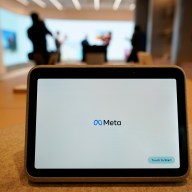CHRISTMAS COMES EARLY THIS YEAR: Even though I’ve been spared the task of recapping it this year, I still can’t bring it in my heart to temper my white hot hatred of American Idol and all the other little Idols with at least benevolent disdain. This would explain why articles like the one that ran in yesterday’s Los Angeles Times filled my heart with song — a hundred-piece orchestra going hammer and tongs at a Wagner overture, if you want to know the truth.
Ratings are down, apparently, on the current season of American Idol. The numbers aren’t catastrophic — Nielsen cites them at around 7 per cent, bringing the total viewership to just below 30 million as of last week — but they’re down nonetheless. Even more damning, the biggest losses have been in the demographics covering women from 18 to 34, and in kids from 2 to 11. According to some kind of “woman and children first” rule in broadcast television, this is worrying because, as the Times put it, “children and young adults are generally the first to bail on a show that’s getting crow’s feet.”
Idol’s decline is, according to writer Scott Collins, “adhering to form” — a form that almost inevitably sees hit shows start their slide to cancellation somewhere between Season 5 and 7, but this decline has to be tempered with the fact that primetime viewership across the board has slumped since the Hollywood writers’ strike, a collective drop of 10 per cent for all five of the major networks this season.
“Everything has a sell-by date,” said the show’s executive producer Ken Warwick. “Everything.” Warwick went on, however, to pooh-pooh judge Simon Cowell’s comment — an almost perennial one, if memory serves — that ratings were down because the contestants lacked “personality” and were making “safe” song choices. If this were so, Idol should have begun its precipitous decline right from the start, since Idol contestants aren’t exactly mould-breaking musical revolutionaries with the charisma of either Elvis or Johnny Rotten, and I don’t exactly hear that anyone has defied the R&B/baby boomer hit parade repertoire and hit the stage with Scott Walker covers or tributes to the musical genius that was T. Rex.
Collins rightly points out that the show debuted this year against a landscape of prime time scorched earth after the strike, and should have dominated its two or three evenings a week even more assertively than before. The other networks fondly look forward to a day when the airwaves are Idol-free, and they have a chance of launching new shows midweek again, but as Collins sees it — correctly, again — the show’s fans are fanatics, and not as likely to wander around the dial in search of amusement as they “may head over to YouTube or Facebook, or simply spend time with friends.”
In any case, it seems that — thankfully, finally — the end is in sight for Idol, and may come sooner rather than later due to the simple fact that it’s on axe-happy Fox and not a more long-suffering network like CBS. And one day we’ll all look back at the last six years and wonder what we were thinking. At which point I reserve the right to laugh in your face.
















